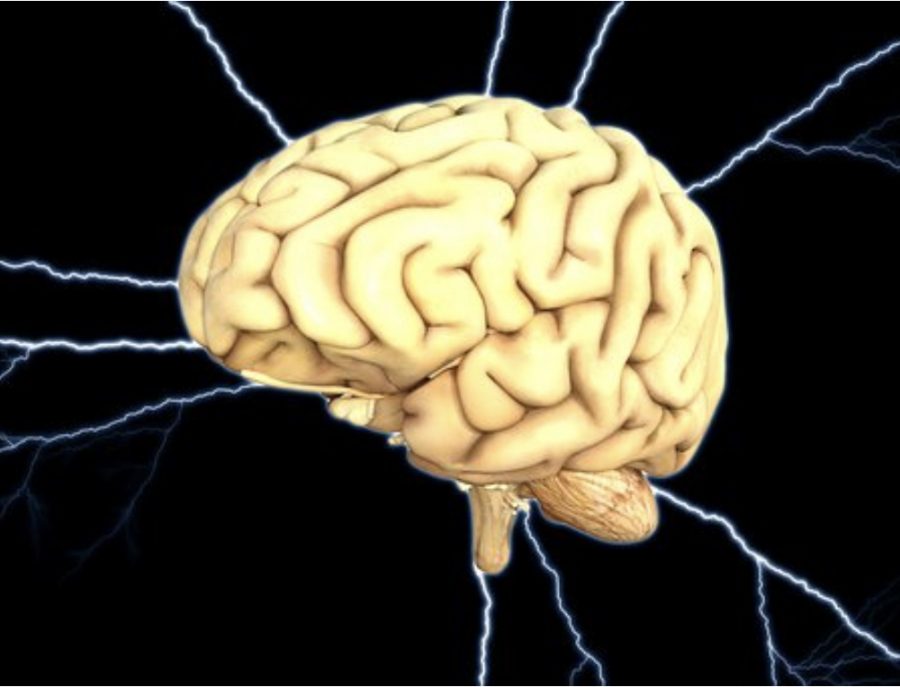Melatonin Malfunction
The human brain.
Technology has become a major part of life today.
People use it in school, at home, and out in public. It is almost guaranteed that everywhere you go, there will be at least one person using some sort of mobile device. These devices can become addicting, and are so frequently used that to that to some people, the thought of going a day or two without them is very difficult. People nowadays use their phones for everything. They are used as calendars, planners, alarms, and even as sources of entertainment. Some apps are used more than others and can end up taking up huge chunks of time out of peoples days. Social media and apps like Netflix or Apple TV allow people to spend hours looking and focusing their eyes at a tiny screen.
“People are on average online for 24 hours a week, twice as long as ten years ago, with one in five of all adults spending as much as 40 hours a week on the web. This is partly due to the rise in use by those aged 16 to 24, who average 34.3 hours a week on the internet,” said Charles Hymas, a writer for The Telegraph.
Even though there are many benefits to having devices that go with you wherever you are, for example, mobility and efficiency, there are also many drawbacks. When people use these devices constantly, from the moment they wake up to when they go to bed, there are negative effects that not many people think about. Using technology right before bed can harm your eyes, and keep you from having a good full night’s rest. Teenagers especially find themselves using their phones for long periods of time before they try and sleep.
“I use my phone before bed almost every day. On the days that I do I use my phone before bed, I find it always takes me longer to actually go to sleep. I usually go on Instagram and Snapchat maybe watch some Netflix before bed, and it always affects the way I sleep that night and the way I feel the next day. Whenever I stay away from using my phone I fall asleep pretty fast, and I usually stay asleep throughout the night,” said senior Gabby Mack.
One of the negative effects of staring at a screen before bed is the suppression of a hormone that aids sleep. The blue light coming from the portable devices people use before bed can suppress a hormone in the body called melatonin. Melatonin is made in the part of the brain called the pineal gland and regulates an internal clock in the body called a circadian rhythm. This is the natural way a person’s body controls when they feel awake or alert, and when they start to become sluggish or tired. This rhythm is controlled by a part of the brain that responds to light. The more light someone’s brain is exposed to, the less melatonin their brain will produce and the more awake someone will feel, which in turn will disrupt their internal clock. This is also one of the reasons why people feel so awake during the day when the sun is out and so tired at night. Naturally, the body’s circadian rhythm fluctuates throughout the day and varies depending on the individual and their sleep patterns. Circadian rhythms are known to change with age, but also when a person’s sleep patterns have been disrupted. This can happen when people stay up later and get less sleep than the human body needs.
“I go to bed around 10 to 10:30 every night and the next day I’m tired, but I’m not nearly as tired as I am when I go to bed later on in the night. When I don’t sleep it’s usually because of a number of things. Whether it’s homework or staying up too late on my phone, the next day, I always have a hard time focusing in classes. I’m annoyed and frustrated, and I crash when I get home from school,” senior Olivia Cieplak said when she was asked what time she usually goes to sleep and how it makes her feel the next day.
The disruption of the circadian rhythm has been related to depression, obesity, and insomnia. The blue light coming from phones, tablets, tvs, and laptops keep your brain from producing hormones that aid sleep, which in turn causes disruptions in sleep patterns and circadian rhythms.
“When we have daylight savings time and the time changes there is always an increase in car accidents the following Monday morning because everyone is thrown off a bit. So let’s say you stay up really late. You normally are asleep by 11, but you stay up till 1 or 2. That lack of sleep adds to a sleep debt that just keeps accumulating. In response to this, your brain is going to be tired and your cognitive functioning, reaction time, processing ability and memory, in terms of recalling and making memories, is not going to work as well,” AP psychology teacher Mrs. Pelz responded after being asked what effects a disruption in ones circadian rhythm could have on them.
Using screens before bed affects the body and mind in major ways. The blue light emitted from the devices people use before attempting to sleep suppress melatonin, which in turn prevents the body from relaxing and eventually falling asleep. The lack of sleep that results from the suppression of this hormone leads to the tiring of someone’s brain and body causing loss of focus among many other things. Some devices have night modes or brightness options that can help with the amount of light emitted from them. Another option is to avoid technology 30 minutes before attempting to sleep. This may seem like a small and unimportant matter, but the lack of sleep caused by the technology people use every day is harmful to the body and the brain.







